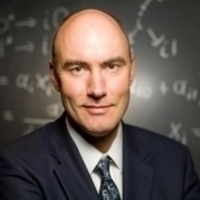Hamilton's rule makes no prediction and cannot be tested empirically
Martin Nowak, Harvard University. - Hamilton's rule is a well-known concept in evolutionary biology.
Title: Hamilton's rule makes no prediction and cannot be tested empirically
Speaker: Martin Nowak, Harvard University
Abstract: Hamilton's rule is a well-known concept in evolutionary biology. It is often perceived as a statement that makes predictions about natural selection in situations where interactions occur between genetic relatives. In contrast, it turns out that "exact and general'' formulation of Hamilton's rule, which is widely endorsed by its proponents, is not a consequence of natural selection and not even a statement specifically about biology. Instead it is a relationship among slopes of linear regression that holds for any suitable data set. It follows that the general form of Hamilton's rule makes no predictions and cannot be tested empirically.
Further reading:
- Nowak MA, B Allen, A McAvoy, EO Wilson (2017). The general form of Hamilton's rule makes no predictions and cannot be tested empirically. Proc Natl Acad Sci 114: 5665-5670
- Allen B, MA Nowak (2016). There is no inclusive fitness at the level of the individual. Current Opinion in Behavioral Sciences 12: 122-128.
- Nowak MA, CE Tarnita, EO Wilson (2010). The evolution of eusociality. Nature 466 (7310): 1057-1062
Professor Nowak is one of the most successful mathematical biologists in the world and also a terrific speaker. He works on evolutionary dynamics and evolutionary game theory, including the evolution of cooperation and human language, as well as the dynamics of virus infections and human cancer. Nowak is the author of over 400 papers and four books, including 54 papers in Nature, 18 papers in Science, and more than 50 papers in PNAS. His work has been cited more than 94,000 times, and his H-index = 136. His textbook Evolutionary Dynamics (2006) provides an overview of the powerful yet simple laws that govern the evolution of living systems. His general audience book SuperCooperators (2011) argues that cooperation is the third fundamental principle of evolution beside mutation and selection.
https://www.math.dartmouth.edu/activities/kemeny-lectures/
